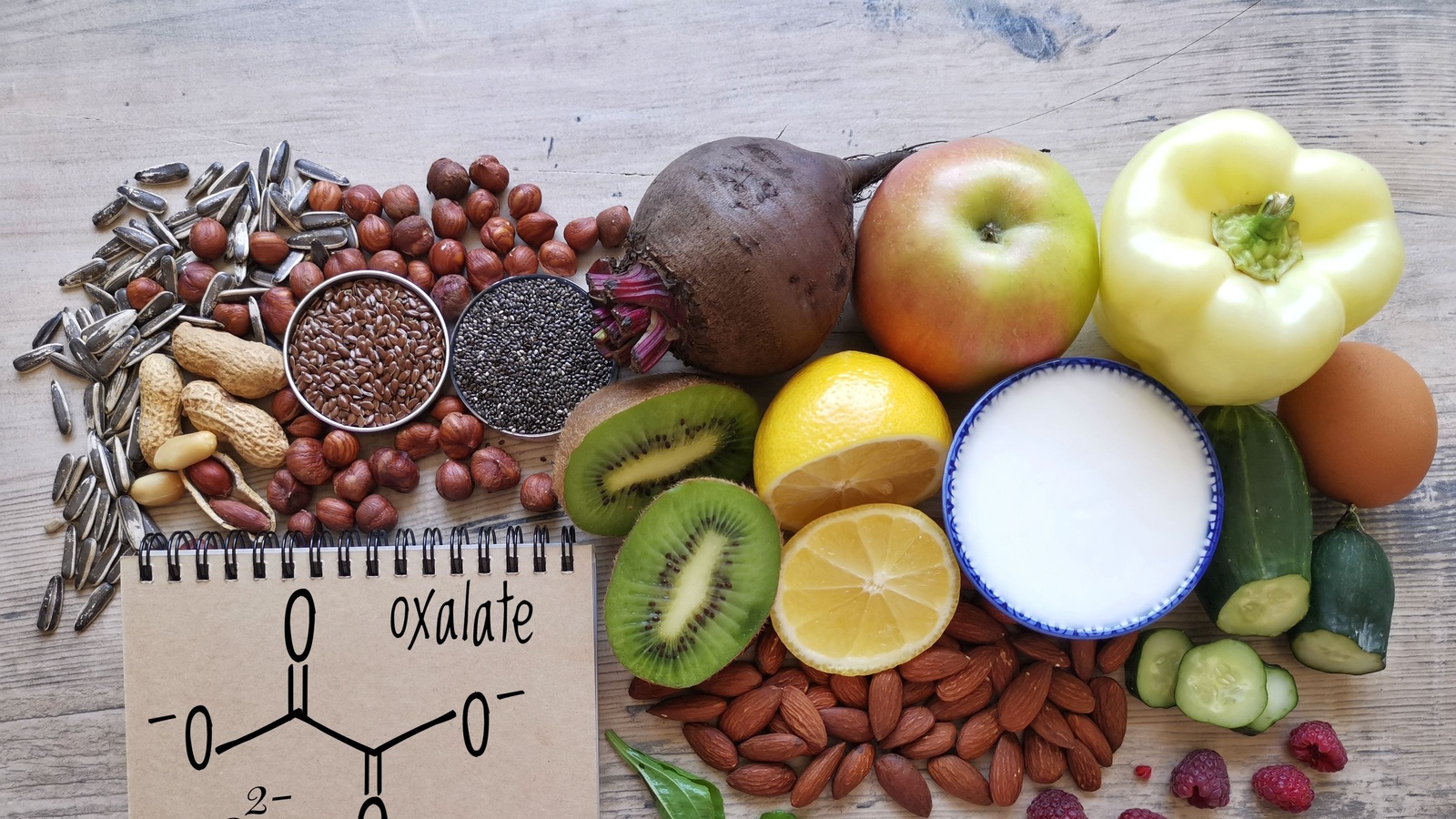Spinach, Beets & Almonds... Should You Be Avoiding Oxalates?
Oxalates have become a topic of interest in the nutrition world, particularly for those focused on optimizing their health through diet. But what exactly are oxalates, and should we be concerned about consuming them? This article delves into the science behind oxalates, their effects on the body, and how to make informed choices about their presence in your diet.
What are oxalates?
Oxalates, also known as oxalic acid, are naturally occurring compounds found in many plant foods. They are formed when oxalic acid binds with minerals, particularly calcium, in the body or in food. While oxalates are present in a wide range of foods, some of the most common sources include:
1. Spinach: Spinach can contribute a significant amount of oxalates to the diet, especially when consumed in large quantities.
2. Rhubarb: Known for its tart flavor, rhubarb contains high levels of oxalates, particularly in the leaves, which are generally not eaten.
3. Beets: Both the roots and greens of beets are rich in oxalates, making them a common source in diets that include these vegetables.
4. Nuts and seeds: Almonds, cashews, and peanuts are particularly high in oxalates, though they also offer other nutritional benefits.
5. Grains: Certain grains like buckwheat, quinoa, and wheat bran contain moderate to high levels of oxalates.
6. Chocolate: A favorite treat for many, dark chocolate is also a source of oxalates.
In plants, oxalates serve a protective function, deterring herbivores from eating them by making the plant less palatable or even toxic in large amounts. However, in the human diet, oxalates are a point of discussion due to their potential impact on health, particularly concerning kidney stones and nutrient absorption.
The role of oxalates in the body
When we consume foods containing oxalates, they can bind to minerals like calcium in the digestive tract, forming insoluble compounds that are excreted in the stool. In most cases, this process is harmless and part of the body’s natural regulation of mineral balance.
However, in some individuals, particularly those with certain medical conditions or a predisposition to kidney stones, oxalates can accumulate and form crystals in the kidneys. These crystals can lead to the development of kidney stones, which are often composed of calcium oxalate. This connection has led to concerns about high-oxalate diets and their role in kidney stone formation.
Should we be consuming oxalates?
The question of whether or not we should consume oxalates is complex and depends on individual health factors. This is why bio-individuality is key. For the general population, consuming oxalate-rich foods as part of a balanced diet is not typically a cause for concern. In fact, many high-oxalate foods, such as leafy greens, nuts, and whole grains, are also rich in essential nutrients like fiber, vitamins, and antioxidants that contribute to overall health.
However, for individuals prone to kidney stones, particularly those with a history of calcium oxalate stones, it may be advisable to moderate the intake of high-oxalate foods. Additionally, these individuals can benefit from strategies to reduce oxalate absorption, such as:
1. Pairing high-oxalate foods with calcium-rich foods: Calcium can bind with oxalates in the digestive tract, reducing their absorption and the risk of kidney stone formation. For example, pairing spinach with a calcium-rich food like dairy can help mitigate the potential risks.
2. Staying hydrated: Adequate water intake helps dilute oxalates in the urine, decreasing the likelihood of kidney stone formation.
3. Changing cooking methods: Boiling vegetables can reduce their oxalate content by leaching oxalates into the water. For instance, boiling spinach significantly lowers its oxalate levels. (Check out 5 of our favorite drinks to up your hydration game here.)
It’s important to note that not all oxalates are absorbed equally. The bioavailability of oxalates can vary depending on the food source and the overall composition of the diet. For example, the oxalates in spinach are more readily absorbed than those in other foods due to the presence of compounds that enhance oxalate absorption.
For most people, oxalates are not something to be overly concerned about. The benefits of consuming a variety of plant-based foods far outweigh the potential risks associated with oxalate intake. However, if you have a history of kidney stones or other health concerns related to oxalates, it’s wise to be mindful of your intake and consider dietary adjustments.
As with many aspects of nutrition, balance is key. A varied diet rich in fruits, vegetables, whole grains, and adequate hydration can help support your overall health while minimizing any potential negative effects of oxalates. If you’re unsure about how oxalates fit into your diet, consulting with a nutrition professional can provide personalized guidance based on your unique health needs.
Do you have a passion for nutrition & natural healing?. Learn more about the Food Matters Nutrition Certification Program here.










